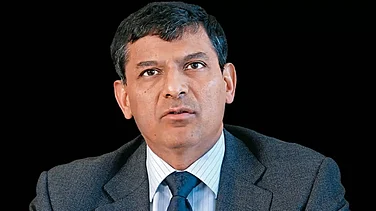The newest entrants in the equity investing domain are the Gen-Z (born between 1997 and 2012, according to Pew Research), many of whom are still minors or under 18 years of age. But can they invest in stocks or mutual funds on their own? If yes, should they be doing so? Let’s find out.
Minors Can Invest In Equities, But Should They? Top Three Factors To Consider
Minors can transact in equities through mutual funds, but it’s important for them to seek proper guidance and advice. Also, starting to invest early helps inculcate the habit of investing.

Can Minors Invest In The Stock Market?
The answer to that question is a bit layered. While they can have demat accounts, they or their legal guardians can’t transact through it. However, they can participate in the equity market through the mutual funds' route.
Demat accounts: The Securities and Exchange Board of India (Sebi) allows the opening of a demat account in the name of a minor, but it needs to be operated by his/her father or mother. In their absence, a legal guardian needs to be appointed by the court.
Sebi, however, restricts minors from selling both buying and selling securities in the stock market and only allows them to hold them in the demat account if received either through inheritance, gift, or due to any government regulation.
“A minor cannot enter into a contract with a stockbroker to purchase or sell any security. However, a trading account in the name of a minor can be opened only for the sole purpose of selling of securities possessed by the minor in the manner specified above (received either through inheritance, gift, or due to any government regulation),” says Sebi.
The account can be used by the minor once he is a major. “A minor’s demat/ trading account can be continued when the minor becomes major. However, on attaining majority, the erstwhile minor should confirm the balance in his/her account and he/she has to complete formalities as are required for opening a demat/ trading account to continue in the same account/s,” says Sebi.
Mutual funds: A minor can buy and sell a mutual fund through their parents or legal guardians. “Anyone under the age of 18 (minor) can invest in mutual funds, with the help of parents/legal guardians until the age of 18. The minor must be the sole account holder represented by the parent/guardian. Joint holding is not allowed in a minor’s mutual fund folio,” according to information available on mutualfundssahihai.com, a website run by the Association of Mutual Funds in India (Amfi).
Should Minors Start Investing So Early?
Starting one’s long-term investment journey early has Its own benefits. In the world of investing, the earlier you start investing, the better it is as the benefits of compounding interest only start showing if you stay invested for the long term. Albert Einstein famously said “Compound interest is the eighth wonder of the world. He who understands it earns it ... he who doesn't... pays it.”
It does not take a large sum of money to start your investment journey, all you need is the willingness to start. Several mutual funds have a minimum investment amount as low as Rs 100, so you can start building a corpus with that and slowly increase the amount once you start earning.
Also, starting to invest early helps inculcate the habit of investing. Sudipta Chowdhury, a final year commerce student, used his pocket money to start investing in a systematic investment plan (SIP) in 2019. “Starting a sip in a mutual fund in my earlier years has helped me build a habit of savings,” he says.
Experts agree that starting to invest early inculcates financial discipline but suggest simple investing methods rather than complicated ones like equity. “Children can start off with simple fixed deposits (FDs). They can then graduate to simple MF investing through index funds to participate in the broad market instead of getting into stock picking,” says Suresh Sadagopan, a Sebi-registered investment advisor and founder, Ladder7 Financial Advisories, a financial planning firm.
Consider The Risks
Investing directly in equities needs considerable research and skill. The mutual funds route is safer but picking up the right fund could be a challenge.
“Direct equity investing needs a decent understanding of the companies, sectors, economy, markets, etc. This would be difficult for a youngster. Hence, they can just invest in index funds,” says Sadagopan.
Also, minors are at an impressionable age and getting swayed by unverified advice can prove to be counter-productive. “They could get carried away by fads or base their investments on what is rallying (shares) at a certain point. These can result in poor outcomes which may scare them away from financial investing itself if they get hurt,” says Sadagopan.
Make sure that you seek advice from a Sebi-registered entity and always consult your parents or guardians.

























